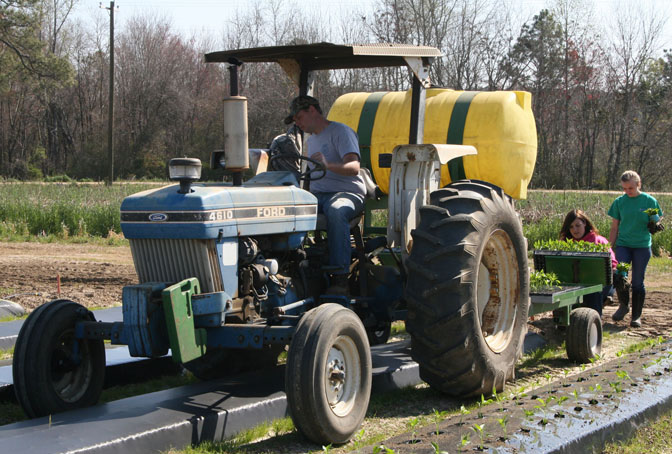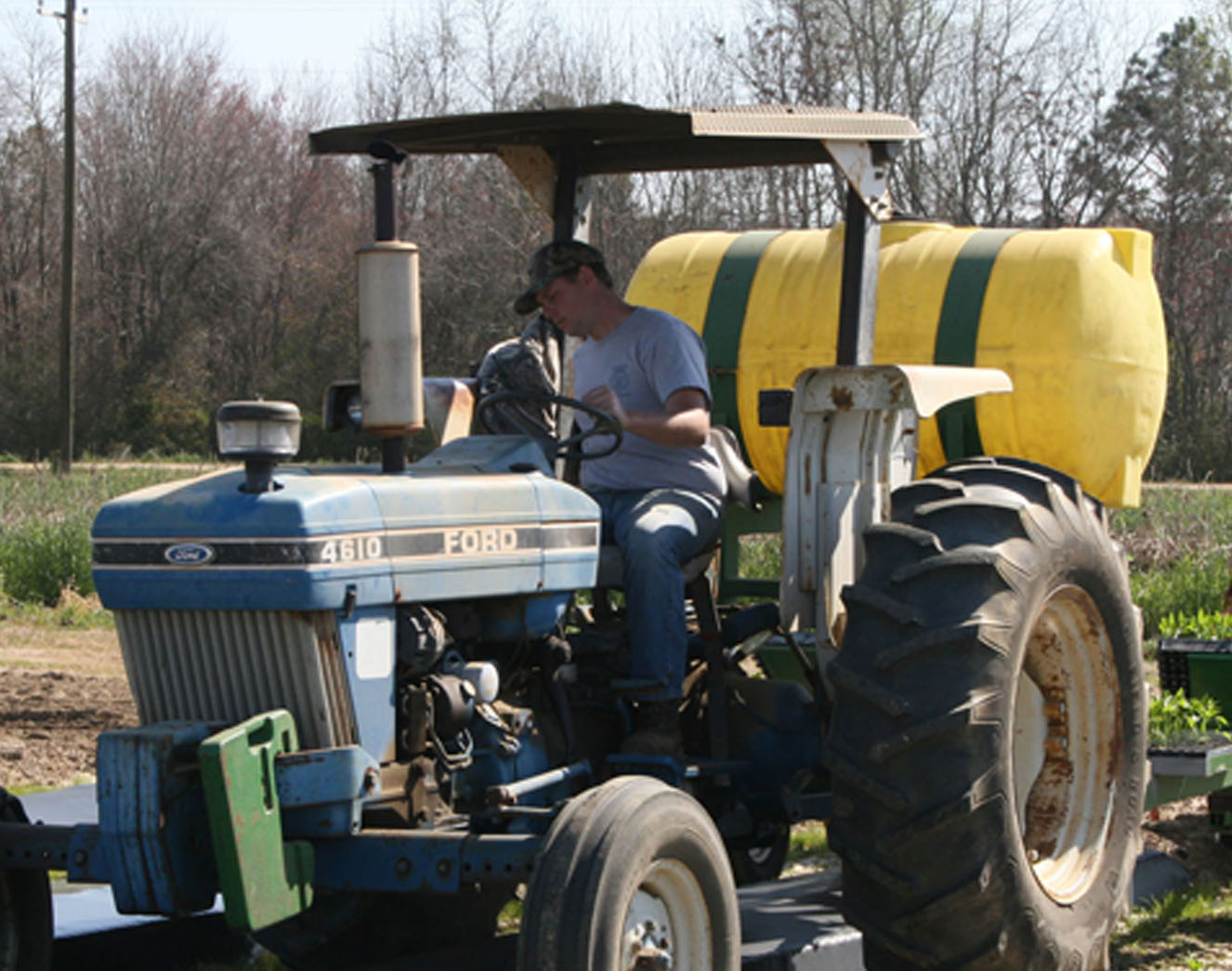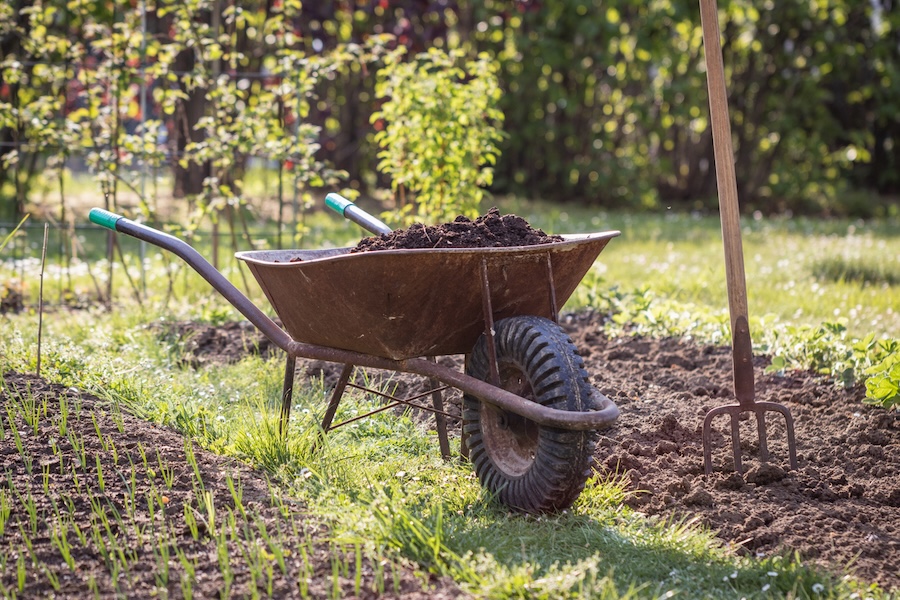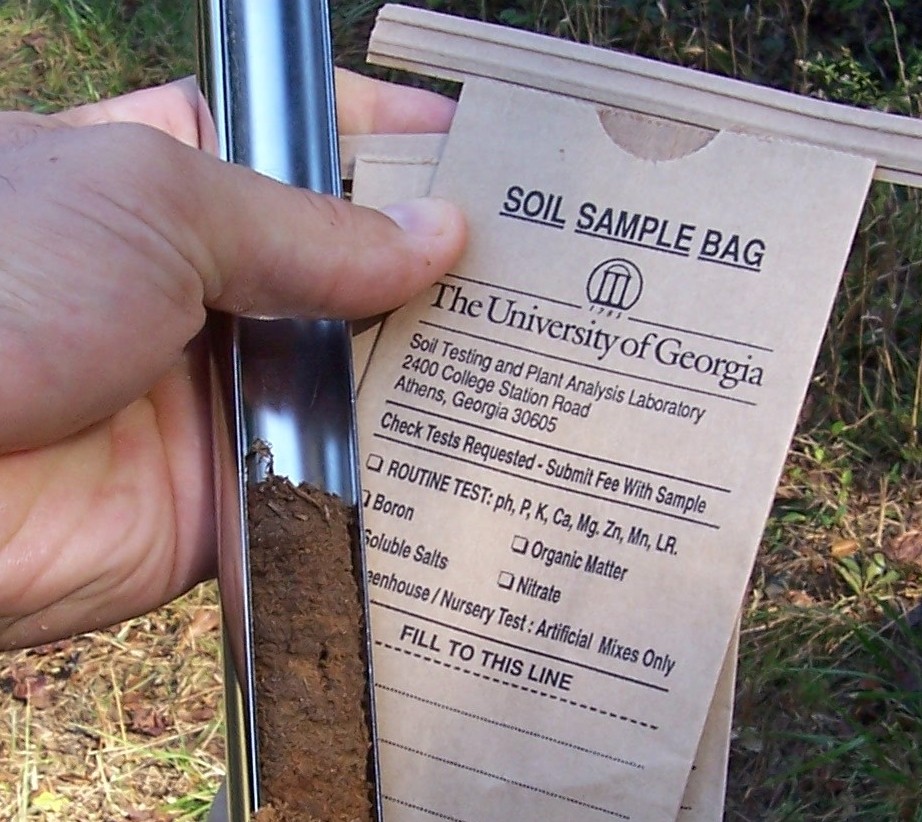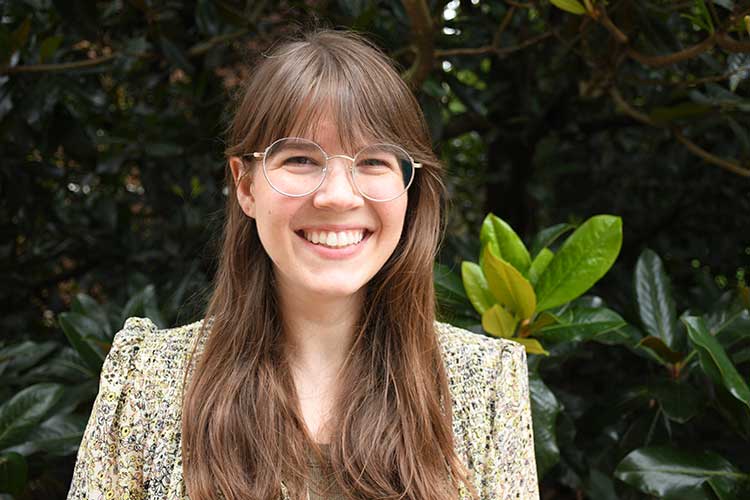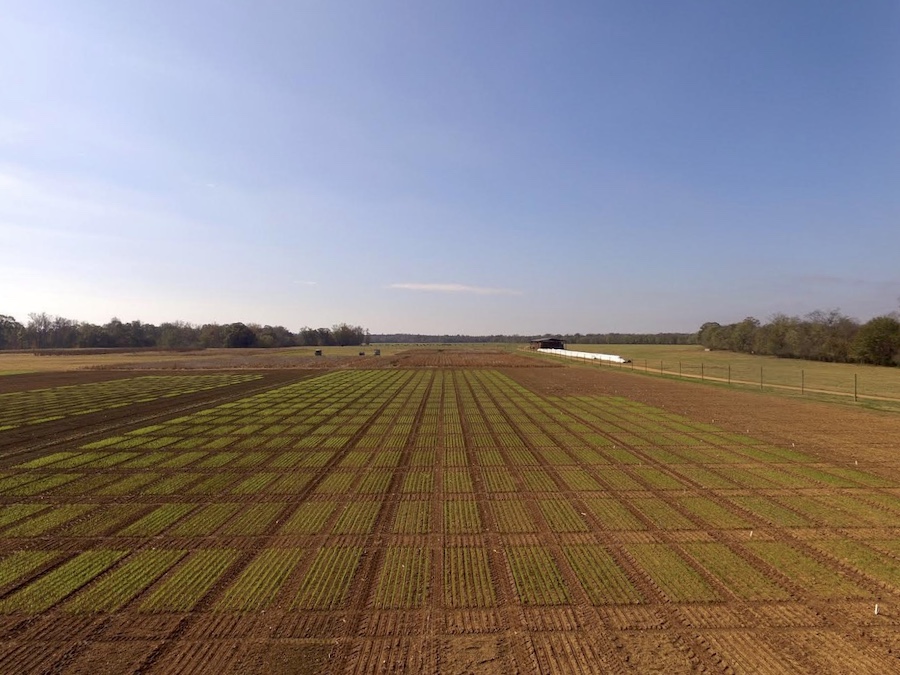For decades, Georgia vegetable farmers relied on the soil fumigant methyl bromide to control weeds, insects and nematodes, but recent changes in environmental regulations have led them to find replacements.
Stanley Culpepper, a weed scientist with the College of Agricultural of Environmental Sciences, has been working to find alternatives to the potentially ozone-damaging pesticide. The challenge has been finding something that is as easy to use and as effective as farmers’ old standby, methyl bromide.
Up until four or five years ago, methyl bromide was also extremely economical and used by nearly every tomato, pepper and eggplant producer in the state.
That changed when the Environmental Protection Agency classified it as harmful to the ozone and began phasing the pesticide out. UGA and the Georgia Fruit and Vegetable Growers Association were able to secure methyl bromide for Georgia growers through a Critical Use Exemption (CUE) in 2006; but the cost of the fumigant rose dramatically.
“Since 2007, growers have displaced methyl bromide rapidly because effective alternatives have been developed that are far more economical,” Culpepper said.
In fact, vegetable growers have advised Culpepper not to seek a request for methyl bromide use in 2014 due to its high cost and the availability of alternatives.
Finding the right alternatives to methyl bromide has been a challenge for Culpepper, who’s devoted almost 10 years to the research project.
“All of the fumigant systems are very expensive. In general, before we ever plant a crop, we’ve got at least $1,000 an acre invested in the fumigant, the mulch and the drip tape. So No. 1, as a scientist, if you’re going to make a recommendation, it better work,” Culpepper said. “You’ve got to know what you’re doing. You’ve got to have good research and a good team behind you.”
Culpepper and his team are researching four systems to replace methyl bromide on farms that use plasticulutre — a planting technique used in commercial vegetable production where black plastic is stretched over planting rows to reduce water loss and block weeds.
The alternatives are more complex because they require a systems approach using three fumigants applied appropriately or two fumigants and a herbicide program. According to Culpepper, the complexity level has increased but Georgia growers have handled the challenges.
One alternative being used is the UGA 3-way system that uses Telone II, metam sodium, and choloropicrin; each applied at the appropriate place in the soil profile to maximize pest activity. This is the most economical but, it is a very complex system, Culpepper said. He estimates it has replaced bromide on about 70 percent of the acres in Georgia.
What is most advantageous is the low-density polyethylene mulch that can be used. Farmers love this because the plastic lasts for an extended period of time allowing them to produce numerous crops. Also, in 25 of 26 spring UGA studies during the past seven years, it was found to control more than 93 percent of the nutsedge, the most challenging pest for most growers.
Another option is Trifecta, a much easier application that combines Telone II, chloropicrin and DMDS. Culpepper points out that Trifecta is still in development, but he is optimistic 2013 research will result in better, yet economical pest control.
The third alternative is the Paladin Pic that includes a 79:21 mixture of DMDS: chloropicrin. It is highly effective in controlling nutsedge and nematodes but herbicides are needed to control annual grasses and broadleaf weeds. Paladin Pic smells like propane, so applicators are advised to mitigate off target odor issues.
This year, working in cooperation with Tri-Est Ag, Culpepper believes he has found a fourth alternative that will offer growers even more flexibility. Culpepper is mum about the alternative as it warrants further study. The alternative will be discussed in depth at the Georgia Fruit and Vegetable Growers Conference set for Savannah in January 2014.
Culpepper added that crops being produced on plasticulture have a Georgia farm gate value exceeding $300 million. Finding an alternative to methyl bromide has been critical in sustaining the production of vegetables in the U.S.

